Trump Impeachment Cheat Sheet
Below is an ongoing summary of the key dates, deadlines and events in the continued Trump impeachment inquiry. I will update it daily with all new bullet-point information as it becomes available and will start with the most current event, so that you can access what is happening now and move backward. (If you are receiving this by email, you will want to refresh the post to get the most updated version.)
December 18
The entire House of Representatives will vote on the impeachment of Donald J. Trump.
December 17
The House Rules Committee will hold a debate on impeachment.
December 16
The House Judiciary Committee released the articles of impeachment against Donald J. Trump that total nine pages. The committee also released the accompanying report, including the Republican dissent, that describes the process by which the committee came to its conclusion, the Constitutional standards for impeachment and the factual basis for the two charges of abuse of power and obstruction of Congress.
Interesting note: the Judiciary Committee used the same first paragraphs in this document as they did for the articles of impeachment in the cases against Richard Nixon and Bill Clinton. The entire document retains similar passages from previous cases of impeachment where appropriate, to keep the precedent for the charges consistent and identical.
December 13
December 10
A Federal judge has set a hearing on this day for final arguments over whether Charles Kupperman, Deputy National Security Advisor John Bolton, must comply with an impeachment subpoena when the Trump administration has ordered him not to testify.
December 9
The House Judiciary Committee will hold a hearing for legal presentations of evidentiary support from both Intelligence Committee and Judiciary Committee attorneys.
December 4
The House Judiciary Committee, led by Chairman Jerry Nadler (D-NY) will begin hearings today. The first four witnesses expected to be called for testimony on the impeachment process and constitutionality will be Noah Feldman from Harvard Law School, Michael Gerhard from the University of North Carolina Law School, Pamela Karlan from Stanford Law School and Jonathan Turley from the George Washington University Law School.
December 3
Chairman Adam Schiff has released the House Intel Committee’s report on the Trump impeachment investigation.
December 1
Trump sends a response letter to Chairman Nadler, through White House Counsel Pat Cipollone, to notify the House Judiciary Committee that the President will not be participating in the committee’s first impeachment hearing.
November 26
House Judiciary Committee Chairman Jerry Nadler (D-NY) sends Trump a letter reminding him of his right to participate in his own defense at the upcoming hearings and setting a deadline for Dec. 6 for White House counsel to notify Congress about whether Trump intends to participate.
November 25
U.S. District Judge Ketanji Brown Jackson of Washington issued a ruling that found that former White House Counsel Don McGahn must testify, thereby destroying Trump administration's claims of “absolute immunity.” This is a BIG WIN for House Democrats with regard to rejecting Congressional subpoenas.
William Burck, Don McGahn's attorney, confirms that McGahn will comply with Judge Jackson’s decision "unless it is stayed pending appeal,” and the Justice Department has issued a statement saying that it will appeal the ruling and seek a stay to block the enforcement of the judicial order. This means further delay in enforcement of McGahn’s subpoena. With Bolton’s case still pending and this decision stalled for the time being, it is unclear if Democrats will move forward on charges or wait to insist on testimony from these witnesses. Stay tuned.
November 21
The committee took testimony from Fiona Hill, the former National Security Council Russia Advisor who previously testified in a closed-door deposition on Oct. 14, and David Holmes, the aide to Amb. Bill Taylor who overheard Sondland discussing the details of the Ukrainian quid pro quo with Trump over a cell phone. You can read more about their detailed testimony here and review my live tweets of the entire session here.
November 20
In the morning, the committee heard public testimony from Ambassador Gordon Sondland and in the late afternoon heading into evening, investigators took testimony from Laura Cooper and David Hale. In addition to the numerous accounts that Sondland was much more involved in orchestrating the quid pro quo than he led investigators to believe, emails have surfaced that show Sondland kept Trump officials appraised of his efforts to get Ukraine to launch an investigation into Joe Biden.
Sondland substantially revised his testimony to confirm that Trump did enact a quid pro quo with Ukraine to pressure them into investigating his political opponent in exchange for the release of their military aid. Sondland also implicated Mulvaney, Pompeo, Pence and others within the Trump administration as being a part of the plan that he said was the main plan, not an alternative side-plan as previous thought. You can read all about his testimony here in, "Was there a quid pro quo? Yes."
David Hale, the Under Secretary of State for Political Affairs and Laura Cooper, the Deputy Assistant Secretary of Defense for Russian, Ukrainian, and Eurasian Affairs, also testified later in the day and into the evening. The biggest take away from this session was when Laura Cooper told Congress that she had first hand knowledge that Ukraine did in fact know that the military aid was being withheld before the Zelensky phone call with Trump. This testimony annihilated Trump’s defense that he couldn’t have intended a quid pro quo because he claimed Ukraine was unaware that aid was being leveraged. Cooper confirmed they did know. You can read more about the testimony from Cooper and Hale here.
November 19
In the morning, the Committee took public testimony from Jennifer Williams, advisor to Mike Pence, and Lieutenant Colonel Alexander Vindman, who serves as the Director for European Affairs at the National Security Council. Williams emphasized her career in foreign service and discussed Pence's role in the withholding of aid to Ukraine. Williams testified that she later learned of the hold on assistance to Ukraine in early July, and of its release on September 11. But she said that she "never learned [first hand] what prompted that decision."
Lt. Col. Vindman also confirmed that Ambassador Sondland told Ukrainian officials in a July 10 meeting that Ukraine would have to provide "deliverables" in order to get a White House meeting for Zelensky. Vindman told the committee that he took "deliverables" to mean the act of opening investigations into Burisma, the Ukrainian energy company that employed Hunter Biden. You can read more about the details of their testimony here.
In the afternoon, the House Intel Committee took testimony from Ambassador Kurt Volker, the former U.S. special envoy to Ukraine, and Tim Morrison, a White House aide with the National Security Council focusing on Europe and Russia policy. These two witnesses were specifically requested as witnesses by House Republicans, but testimony from Volker and Morrison continued to do damage to Trump’s argument that there was no quid pro quo.
Volker amended his previous testimony and confirmed at this point that since he gave his initial testimony, he had “learned a lot” about the Ukraine scheme. Volker said he had now come to the conclusion that the whole thing was not actually the completely benign political exercise that he thought it was when he first testified. Volker stated that he now knew that when Trump and Rudy Giuliani pushed for investigating Burisma, they weren't pushing for a good-faith investigation into Ukrainian corruption — it was for personal gain. You can read more about it here.
November 16
OMB official Mark Sandy to testified in a closed-door hearing on Saturday. Sandy is a longtime career employee at the White House Office of Management and Budget (O.M.B.) and is expected to break ranks by showing up to testify. You can find the transcript of his closed-door testimony here.
He has worked at the agency off and on for over a decade, under presidents of both parties, and could potentially fill in and confirm critical details on why the military aid to Ukraine was not released earlier. Sandy is the first O.M.B. employee to testify in the House impeachment inquiry, after acting director Russell T. Vought and two other political appointees at the agency defied congressional subpoenas and refused to appear.
November 15
(Former Ambassador Marie Yovanovitch testifying before Congress in the second day of open hearings for the Trump impeachment inquiry.)
The House held public impeachment hearings with former Ambassador Marie Yovanovitch. Marie Yovanovitch testified that a smear campaign waged by "foreign corrupt interests" led to her early ouster. Yovanovitch also said she was prematurely recalled from her post in Ukraine due to Trump allies working to tarnish her reputation after 33 years in public service.
Yovanovitch testified for more than six hours and she said she was given no reason for her abrupt removal from Kiev, while also explaining that she did not know why she was targeted by Rudy Giuliani. She testified that she felt threatened when she learned what Trump said about her in his July 25 phone call with Ukrainian President Volodymyr Zelensky when he called her "bad news" and said she would be "going through some things."
She told Congress that when she learned all of this it provoked a physical reaction. "A person who saw me actually reading the transcript said that the color drained from my face," she said Friday, becoming visibly upset. "Even now, words kind of fail me ... I was shocked and devastated that I would feature in a phone call between two heads of state in such a manner."
In the middle of the hearing, Trump attacked her on Twitter, and she reacted by telling Rep. Schiff (D-CA) in her testimony that Trump’s tweets were "very intimidating." (See below.) Essentially, Trump committed an impeachable offense of witness intimidation while his impeachment hearing was actually ongoing.
(David Holmes, a State Department official and aide to Bill Taylor, arriving for a closed-door deposition on Capitol Hill on November 15, 2019.)
David Holmes, counselor for political affairs at the U.S. embassy in Kiev, testified in a closed-door hearing following Bill Taylor’s public testimony that Holmes overheard a conversation between Sondland and Trump in Kiev. During his testimony, Holmes read an opening statement to the committees that confirmed he had first hand knowledge that Trump intended the quid pro quo, that Sondland’s testimony that he didn’t know about the investigation involving the Biden’s was a lie and that Trump was a part of the plan to pressure Ukraine during the most critical steps.
Read more about it here.
November 14
There are no hearings scheduled for today, but the Associated Press is reporting that another staffer overheard the conversation between Sondland and Trump on the phone in Kiev. Suriya Jayanti, a foreign service officer based in Kyiv, also overheard the cellphone call between President Trump and his ambassador to the European Union discussing the need for Ukrainian officials to pursue “investigations.”
November 13
The House began begin public impeachment hearings and former Ambassador Bill Taylor and George Kent will testified before Congress.
November 11
House investigators released the full transcript for the depositions of Deputy Assistant Secretary of Defense Laura Cooper. Transcripts for Special Advisors to Ukraine Catherine Croft and Christoper Anderson were also released.
November 10
National Security Adviser Robert O’Brien confirmed on Sunday (one day before Veteran’s Day) that Purple Heart recipient Lt. Col. Alexander Vindman has been fired from his post at the White House National Security Council after testifying against Trump weeks ago in the House impeachment inquiry. O’Brien said Vindman, who currently serves as Director for European Affairs, will be removed as a part of the White House’s “streamlining” efforts.
O’Brien said, “My understanding is he’s–that Colonel Vindman is detailed from the Department of Defense. So everyone who’s detailed at the N.S.C., people are going to start going back to their own departments and we’ll bring in new folks.” Speaking to Face the Nation on Sunday, O’Brien claimed that Vindman being removed was the result of stream-lining the National Security Council, which had become “bloated” under Obama and more than doubled in size. O’Brien also made a point to specify that Vindman was detailed from the Department of Defense as he made it appear that this was a routine shuffling of personnel instead of what it looks like — blatant retaliation by the Trump administration for Vindman speaking out to Congress about the actions of the President.
November 8
House investigators released the full transcripts for the depositions of Fiona Hill and Lt. Col. Alexander Vindman.
According to the transcript for Fiona Hill, a former top adviser to Trump on Russia and Europe, it was during her testimony that Rep. Matt Gaetz (R-FL) stormed the basement SCIF to disrupt the proceedings. Intelligence Chairman Adam Schiff (D-CA) is quoted as saying: "Mr. Gaetz, you're not permitted to be in the room. Please leave" and at another point of the hearing Schiff tells Gaetz to "absent yourself" from the SCIF.
Rep. Jim Jordan (R-OH), ranking member for the House Oversight Committee and one of Trump's key allies, told Schiff that Gaetz is "going to stay and listen to the testimony.” Gaetz then added that he had a "right" to be there and asked Schiff if there was a "rule" he could cite that would bar Gaetz and others from entry to the SCIF. Schiff said: "You're not a member of this committee. This is conducted in closed session." Schiff later stated in the transcript that he was "citing the House rules and the deposition rules. You are not permitted to be here."
When Gaetz continued to press Schiff to specify which rule he was referencing in particular, Schiff responded by saying, "Mr. Gaetz, why don't you take your spectacle outside? This is not how we conduct ourselves in this committee."
Mick Mulvaney, acting White House Chief of Staff, was asked to testify about his direct involvement in “an effort directly orchestrated by President Trump, his personal agent, Rudolph Giuliani and others to withhold a coveted White House meeting and nearly $400 million in security assistance” to pressure Ukraine. The White House issued a statement that they will not cooperate with the investigation.
Right before Mulvaney’s scheduled deposition was supposed to start, an official with the impeachment inquiry told press, “This morning, one minute before his scheduled deposition was to start, Mr. Mulvaney’s outside counsel informed us that his client had been directed by the White House not to comply...and asserted 'absolute immunity'.”
November 7
(Jennifer Williams, special adviser to Vice President Mike Pence on Capitol Hill.)
Jennifer Williams, a special advisor to Vice President Pence for Europe and Russia, testified on Thursday. (Williams joined Pence’s staff in the spring and accompanied him to Warsaw in early September, where he met with Zelensky to discuss nearly $400 million in military aid that is now in question in the impeachment inquiry.)
In her testimony, Williams confirmed that she listened to the July 25 phone call between Trump and President Zelensky of Ukraine and she said she was surprised by the apparent political undertones from President Trump during the phone call. Williams also told impeachment investigators that Vice President Pence was not involved in any similar conversations about political investigations, including any discussions with Zelensky, which mirrored Pence’s own statements throughout the week.
For more on this read, “Trump's Impeachment Will Implicate Pence.”
(John Bolton during a White House press briefing earlier this year.)
John Bolton, former National Security Adviser is scheduled to testify in a closed-door session. Bolton has publicly expressed frustration with Trump and Trump’s allies, including Giuliani, who pressed for a Ukrainian investigation into the Democrats. It is expected that Bolton will appear as scheduled and likely testify publicly once hearings begin mid-November.
House investigators released the full transcripts for the deposition of George Kent.
November 6
(Rick Perry at the White House on June 12, 2019.)
Rick Perry, outgoing Department of Energy Secretary who set up the July 25 phone call between Trump and Zelensky, was scheduled to testify. Perry said he would "not partake in a secret star chamber inquisition where agency counsel is forbidden to be present" and did not appear.
T. Ulrich Brechbuhl, State Department counselor, was scheduled to testify but failed to appear. Brechbuhl was subpoenaed on Oct. 25 to give a deposition on Nov. 6 with House impeachment investigators, but failed to appear previously when asked to give a voluntary deposition. Although he gave no explanation to Congress, it was reported that he was on a flight to Germany with Sec. Pompeo when he was scheduled to testify.
Russell Vought, White House Office of Management and Budget acting director, was subpoenaed to testify, but did not appear. Vought did not appear when previously requested to give a deposition, and and has said he will not cooperate with impeachment investigators.
David Hale, Undersecretary of State for Political Affairs, testified. In his testimony, Hale stated that he thought Marie Yovanovitch was doing a good job at her post and that he was the one who asked her to extend her assignment there. When discussing the events with Ukraine, Hale said it became “more and more obvious that this was an unusual set of things that were happening” and that Rudy Giuliani “was involved.”
Hale also said that Secretary Pompeo was the “most likely” person to have made the decision not to support Ambassador Yovanovitch after Trump’s comments about her were released. Hale also told investigators that the State Department did not put out a statement in her defense because he did not want to “fuel further negative reaction.”
November 5
House investigators released the full transcripts for the depositions of Gordon Sondland and Kurt Volker. In addition, the Committees released all additional Volker text messages. (The Committees first released excerpts of text messages produced by Ambassador Volker on October 2, 2019.)
Gordon Sondland updates his testimony with the Congressional Committee on Nov. 4 and the details of the four page update and transcript were made public. In the sworn addendum, Sondland claimed he had “refreshed [his] recollection” after reading the testimony given by Taylor and Morrison, who were forthright in saying that the Ukrainian aid was a quid pro quo in exchange for an investigation into Biden. Sondland now admits that by early September, he had become convinced that military aid and a White House meeting were conditioned on Ukraine committing to investigations into Trump’s political opponents.
Sondland updated his testimony to reflect that he had discussed the link between an investigation and the White House with Andriy Yermak, a top adviser to President Volodymyr Zelensky of Ukraine during a Sept. 1 meeting between Vice President Mike Pence and Mr. Zelensky in Warsaw. Sondland also confirmed that President Zelensky discussed the suspension of aid directly with Pence.
Sondland also confirmed in his new testimony, he believed that withholding the aid was conditioned on the investigations but was “ill-advised,” and that he did not know “when, why or by whom the aid was suspended.” Sondland also specified in his revised statement that "Ambassador Volker, Secretary Perry, and I understood that satisfying Mr. Giuliani was a condition for scheduling the White House visit, which we all strongly believed to be in the mutual interest of the United States and Ukraine."
This new testimony is Sondland’s way of explaining that the quid pro quo existed, but that it was not his idea. A month ago Sondland presented himself as a novice and an unwitting observer to the actions of the Trump administration, but these new details confirm what we already knew from other’s testimony — that Sondland was quite aware of everything that was happening and a main player in the quid pro quo negotiations.
Wells Griffith, Director of International Energy and Environment at the National Security Council was scheduled to testify but did not appear.
Michael Duffey, White House Office of Management and Budget official, was subpoenaed to testify but did not appear. Duffey had declined to appear when asked voluntarily to appear for a deposition previously and there was an O.M.B statement that officials will not cooperate with impeachment investigators.
November 4
House investigators released the full transcripts for the depositions of Marie Yovanovitch from Oct. 11 and Michael McKinley from October 16.
(Acting White House Chief of Staff and O.M.B. Director Mick Mulvaney.)
Mick Mulvaney, Director of the Office of Management and Budget (O.M.B.), as well as acting White House Chief of Staff, was scheduled to testify. O.M.B. employees have not appeared as scheduled and have followed White House instructions to ignore Congressional requests and subpoenas, citing “Constitutional Immunity.”
(Assistant to the President and Senior Advisor to the Chief of Staff Robert Blair.)
Robert Blair, a senior adviser to acting White House Chief of Staff Mick Mulvaney, is scheduled to testify. According to The Washington Post, Congressional Republicans are predicting that Robert Blair will refuse to appear on Monday, though a White House spokesman and Blair’s attorney, Whit Ellerman, did not respond to questions about his plans.
Brian McCormack, Director of Natural Resources, Energy and Science at O.M.B. is scheduled to testify. McCormack previously served as chief of staff to Energy Secretary Rick Perry. Axios is reporting that he will appear, but McCormack has not commented publicly on the request and considering that all other O.M.B. employees are refusing to show, it is not likely. Stay tuned.
John Eisenberg, National Security Council lawyer within the White House was implicated in moving the July 25 transcript to a secret, remote server by the testimony of Vindman last Wednesday. Eisenberg was also interviewed by special counsel Robert Mueller during his investigation. Investigators requested Eisenberg’s testimony last week, but it is not likely he will appear. Eisenberg has not commented publicly on the request.
Michael Ellis, Deputy National Security Council lawyer to Eisenberg within the White House, was implicated by the testimony of Vindman last Wednesday. Vindman told investigators that Ellis was present for many interactions with Eisenberg and himself. Investigators requested Ellis’ testimony last week, but it is not likely he will appear. Ellis has not commented publicly on the request.
October 31
(Tim Morrison, Europe and Russia chief of the National Security Council, arriving on Capitol Hill for his testimony on Oct. 31.)
Timothy Morrison, Senior Director for Russian affairs at the National Security Council, testified after his previously scheduled deposition on Oct. 25 was postponed due to funeral services for Cummings.
Morrison is the first official currently serving in the White House to testify before the committees and relayed his first hand knowledge of the July 25 call between Trump and the Ukrainian president. Morrison testified for more than eight hours behind closed doors. During his testimony he confirmed Ambassador Bill Taylor’s testimony that Trump sought to withhold military aid to Ukraine and refuse a White House meeting with the country’s president in order to create a quid pro quo for Ukraine to announce investigations into Trump’s political rivals.
Morrison was careful to not directly criticize Trump’s actions with Ukraine and instead focused on the act of freezing military aid to Ukraine, which he deemed a mistake. Morrison also said during his testimony that he did not believe Trump did anything “illegal.”
Morrison described a “sinking feeling” during his testimony after he learned about a phone call between Trump and Ambassador Sondland, where Trump demanded that Zelensky formally and publicly announce investigations into Joe Biden and the 2016 election. According to a source close to Morrison, his testimony on Thursday provided “nuance” that Bill Taylor was not able to relay in his own testimony. Morrison was also able to “give an oral history of the aid package for Ukraine,” including why it was held up and when it was eventually released.
October 30
Kathryn Wheelbarger, acting Assistant Secretary of Defense for International Security Affairs, was scheduled to testify, but it has again been rescheduled to a later date that has not been made public at this time. This testimony was rescheduled from last week. Wheelbarger was expected to testify about what the Pentagon knew about the White House’s decision to withhold military aid from Ukraine.
October 29
(Army Lt. Col. Alexander Vindman arrives at a closed session before the House Intelligence, Foreign Affairs and Oversight committees on Oct. 29, 2019.)
Lt. Col. Alexander Vindman, National Security Council Director for European Affairs, testified. Vindman released his statement publicly the night before his testimony and stated that Ambassador Sondland emphasized the importance that Ukraine deliver the investigations into the 2016 election, the Bidens and Burisma following a July 10 meeting with Rick Perry and John Bolton. Vindman told Sondland that “his statements were inappropriate, that the request to investigate Biden and his son had nothing to do with national security, and that such investigations were not something the NSC was going to get involved in or push.” Vindman confirmed that Dr. Fiona Hill also asserted to Sondland that his statements were inappropriate.
Vindman listened to Trump’s July 25 call with Ukraine and said he was concerned by the call and he did not think it was proper and was worried about the implications and how a partisan investigation into Burisma could undermine U.S. national security. Vindman reported his concerns to the N.S.C.’s lead counsel but he confirmed in his statement that he is not the whistleblower and does not know who the whistleblower is. Acting House Oversight Chairwoman Carolyn Maloney (D-NY) told NBC News she found Vindman’s prepared remarks “extremely, extremely, extremely disturbing,” as she left the deposition Tuesday morning.
Vindman told House impeachment investigators on Tuesday that the White House transcript of a July call between President Trump and Ukraine’s president omitted crucial words and phrases, but that his attempts to include the appropriate words failed in two specific instances. Colonel Vindman said the omissions included Trump’s assertion that there were recordings of Joe Biden discussing Ukraine corruption, as well as an explicit mention by President Zelensky of Burisma Holdings.
Vindman was also told not to discuss his concerns about the Trump/Zelensky conversation with anyone outside the White House by White House Counsel, John Eisenberg, who has now been implicated in moving the transcript of the July 25 call to a remote, secret server. For more detail read, Vindman Links White House Lawyer to Secret Server.
House investigators released the full transcript for the deposition of Lt. Col. Alexander Vindman on Nov 8.
October 28
Charles Kupperman, former deputy national security adviser under John Bolton, was scheduled to testify. Kupperman filed suit asking a federal judge to rule on whether he could testify, after Trump asserted that he is immune from Congressional process and instructed him not to testify on the basis of “constitutional immunity.” Kupperman told the committee he will not testify while he is awaiting instruction from the judge. The House has withdrawn its subpoena for Charles Kupperman as of Nov. 6 and no longer wants to question him. According to a court filing, "the subpoena at issue in this matter has been withdrawn and there is no current intention to reissue it.”
October 26
Phillip Reeker, acting Assistant Secretary for European and Eurasian Affairs and a career Foreign Services Officer gave a lengthy deposition and Rep. Stephen Lynch (D-MA), a member of the House Oversight Committee, told The Wall Street Journal on Saturday afternoon that the panels were learning more from Mr. Reeker than they had anticipated: “He’s being helpful in some respects, he is corroborating previous witnesses and their testimony. It’s a much richer reservoir of information that we originally expected.” Here is the transcript of his testimony.
October 25
Suriya Jayanti, a foreign service officer stationed in Kyiv who specializes in energy issues, was scheduled to be deposed Oct. 25. Jayanti is expected to confirm Trump administration efforts to oust former Ambassador Yovanovitch by a group that includes Giuliani and Lev Parnas. All depositions scheduled for Oct 24 and 25 have been reportedly been rescheduled due to funeral services for the late former House Oversight Committee Chairman Elijah Cummings.
Tim Morrison, Senior Director for Russian affairs at the National Security Council, was scheduled to testify on Oct. 25, according to multiple news sources, but the deposition has been rescheduled due to services for Cummings. Morrison will be able to corroborate the opening statement of Bill Taylor, who gave a detailed account of Trump using a quid pro quo against Ukraine, and Morrison relayed many pivotal conversations that confirm this to Taylor.
Russell Vought, Acting Director for White House Office of Management was scheduled for deposition on Oct. 25, but he tweeted that OMB officials, including himself, would not be complying with Congressional deposition requests.
October 24
Alexander Vindman, the National Security Council director for European Affairs and an expert on Ukraine, was scheduled to be deposed on Oct. 24, but this has been rescheduled. (At this point, it has not been confirmed if Vindman was present for the July 25 telephone call between Trump and Ukrainian President Zelensky.)
Kathryn Wheelbarger, the acting Assistant Secretary for International Security Affairs, was scheduled to be deposed today after a request was sent on Oct. 11. All depositions scheduled for Oct 24 and 25 have been reportedly been rescheduled due to funeral services for the late former House Oversight Committee Chairman Elijah Cummings.
October 23
Michael Duffey, associate director for national security programs at the White House Office of Management and Budget was scheduled to be deposed today, but Russell Vought, acting OMB Director, tweeted that OMB officials, including Duffey and himself, will not be complying with Congressional deposition requests.
Phillip Reeker, acting Assistant Secretary for European and Eurasian Affairs and a career Foreign Services Officer was scheduled to give a deposition today, but the testimony has reportedly been rescheduled due to funeral services for the late former House Oversight Committee Chairman Elijah Cummings.
Laura Cooper, Deputy Assistant Secretary of Defense whose work focuses on Ukraine, Russia and Eurasia, is expected to testify in closed session. Her deposition was rescheduled from Oct 18.
October 22
(Former U.S. Ambassador to Ukraine Bill Taylor arrives at the U.S. Capitol to testify before the House Intelligence, Foreign Affairs and Oversight committees as part of the ongoing impeachment investigation of Donald Trump on October 22, 2019.)
Ambassador Bill Taylor appeared for a deposition before Congress today to discuss what he knew about Trump’s intentions with Ukraine and if there was in fact a quid pro quo involved in Trump’s attempts to pressure Ukraine. Because White House counsel Pat Cipollone had instructed all members of the State Department to ignore Congressional requests and not cooperate on Oct. 8, the House of Representatives subpoenaed Taylor this morning formally to ensure his participation.
Taylor testified before the relevant House committees and read a bombshell opening statement to the Committee where he described “two channels of U.S. policy-making and implementation, one regular and one highly irregular.” (Read Taylors’ full statement here.) The irregular one was “well connected in Washington and operated mostly outside of official State Department channels” and consisted of Volker, Sondland, Perry and Giuliani. Taylor also gave a detailed description of several of Trump’s actions directly and through his advisors that in fact denotes that he withheld military aid to Ukraine in exchange for a public statement by Zelensky that he would investigate Biden.
For more on Taylor’s testimony read: Taylor Gives Bombshell Confirmation of Quid Pro Quo.
October 18
Deadline for former Energy Secretary Rick Perry to produce subpoenaed Ukraine documents.
Deadline for acting White House chief of staff Mick Mulvaney to produce subpoenaed Ukraine documents.
Deputy Assistant Secretary of Defense Laura Cooper was scheduled to testify, but it was postponed and rescheduled for Oct. 23.
October 17
(U.S. Ambassador to the European Union, Gordon Sondland, arriving on Capitol Hill for his testimony before Congress in Trump’s impeachment inquiry on Oct. 17.)
Gordon Sondland, the former hotelier and the ambassador to the European Union, who missed his previously scheduled date to testify on Oct 8 and the deadline for turning in documents to Congress on Oct. 14, testified. In his lengthy opening statement he emphasized his belief that a call and White House meeting between Presidents Trump and Zelensky were important and that there should be no pre-conditions. He made a point to state that the president directed him that, “there is no quid pro quo.” He also stated, “the President repeated: “no quid pro quo” multiple times.” He said the diplomatic team was disappointed by the President’s instance on involving Giuliani in Ukrainian dealings.
Sondland confirmed he was not present for the July 25 call and says he did not even see a transcript of that call until September 25, 2019. Sondland claimed it was Giuliani who emphasized that Trump wanted a public statement from Zelensky committing Ukraine to look into anticorruption issues and that Mr. Giuliani specifically mentioned the 2016 election (including the DNC server) and Burisma as two anti- corruption investigatory topics that were important to the President. Sondland claimed he told a Ukrainian official to stop texting simply because he “prefer[s] to talk rather than to text” and that he does this all the time-it was not an attempt to conceal the substance of the communications.
According the The Wall Street Journal, Sondland told House committees that he believed Ukraine agreeing to open investigations into Burisma and into alleged 2016 election interference was a condition for a White House meeting between Mr. Trump and Ukrainian President Volodymyr Zelensky. Mr. Sondland’s lawyer, Robert Luskin, said that Sondland believed that arrangement involving the investigation in exchange for a meeting was a quid pro quo.
T. Ulrich Brechbuhl, State Department counselor, who initially failed to appear for a scheduled deposition on Oct. 8 after Mike Pompeo told investigators that State Department witnesses needed more time to prepare, is scheduled to testify.
October 16
(Michael McKinley, right, the former top aide to Secretary of State Mike Pompeo, arrives on Capitol Hill on Oct. 16.)
Deadline for Lev Parnas to produce subpoenaed Ukraine documents.
Deadline for Igor Fruman to produce subpoenaed Ukraine documents. Igor Fruman is bailed out of jail on Oct 16, while Parnas is not.
Michael McKinley, former senior adviser to Secretary of State Michael Pompeo who resigned last Friday, testified. He told three joint committees conducting the interview, the House Committee on Foreign Affairs, the House Permanent Select Committee on Intelligence, and the House Committee on Oversight and Reform, that that he resigned because he was upset that the Trump administration had wrestled Ukraine policy away from career diplomats. McKinley also said that the last straw for him was the ouster of Marie L. Yovanovitch, the former ambassador to Ukraine whom Mr. Trump ordered removed.
On Nov 4., House investigators released the full transcript for the deposition of Michael McKinley from October 16.
Kurt Volker returned briefly, after testifying two weeks ago for more than eight hours for the purpose of reviewing the transcript of his earlier deposition. No new testimony from Volker was expected at this time.
October 15
(George Kent, the Deputy Assistant Secretary of State responsible for Ukraine, arriving on Capitol Hill on Oct. 15 for his testimony.)
Rudy Giuliani missed the deadline to produce subpoenaed Ukraine documents.
Vice President Mike Pence missed the deadline to produce subpoenaed documents.
Defense Department missed the deadline to produce subpoenaed documents.
O.M.B. missed the deadline to produce subpoenaed documents.
George P. Kent, European Expert within the State Department, testified to House Intel Committee behind closed doors. Kent told Congress that at a May 23 meeting, acting O.M.B. director Mick Mulvaney sidelined State Department officials and tapped three political appointees — Energy Secretary Rick Perry, European Ambassador Gordon Sondland and special envoy Kurt Volker — to oversee Ukraine policy for the United States. According to Kent, the the trio called themselves “the three amigos” and pushed all the other officials at State out of the way. Kent also testified that he was told to “lay low” by a superior when he raised concerns about Rudy Giuliani, who was out of his depth working to pressure the Ukrainian government to investigate Hunter Biden, the son of former Vice President Joe Biden. Kent also told the committee that Giuliani attempted to secure a visa from the State Department for ousted Ukraine prosecutor Viktor Shokin.
House investigators released the full transcripts for the deposition of George Kent on Nov. 7.
October 14
(Fiona Hill, former adviser on Russia and Europe, arriving on Capitol Hill for her testimony on Oct 14.)
Deadline for Gordon Sondland to produce subpoenaed Ukraine documents.
Semyon Kislin, Giuliani associate, testified before House Intel Committee behind closed doors. Kislin has mostly flown under the radar and is a business associate of both Donald Trump and Rudy Giuliani, who allegedly tried to obtain millions of dollars that Ukrainian prosecutors deemed stolen.
Fiona Hill, former national security official specializing in the former Soviet Union on Russian and European affairs, testified. Hill told Congress that John Bolton told her to notify the chief lawyer for the National Security Council about a rogue effort by Gordon Sondland, Rudy Giuliani and Mick Mulvaney, the acting White House chief of staff. Bolton told Hill, “I am not part of whatever drug deal Sondland and Mulvaney are cooking up.” Hill also relayed that Bolton said, “Giuliani’s a hand grenade who’s going to blow everybody up.” Hill was apparently alerted to Giuliani and Sondland’s attempts to pressure President Zelensky in May, according to NBC News, as well as the involvement of Giuliani associates Lev Parnas and Igor Furman and told John Bolton about all of it.
House investigators released the full transcript for the deposition of Fiona Hill on Nov. 8.
October 11
(Marie Yovanovitch, former U.S. Ambassador to Ukraine, arrives on Capitol Hill for her testimony before Congress in the impeachment inquiry of Donald Trump on Oct. 11.)
Igor Fruman, Giuliani associate, missed scheduled deposition after being arrested.
Marie Yovanovitch, former US Ambassador to Ukraine testified. Yovanovitch gave an opening statement that asserted that she was removed from her position because of a “concerted campaign” against her pushed by operatives like Parnas and Fruman, led by Giuliani and supported by Trump.
On Nov 4., House investigators released the full transcript for the deposition of Marie Yovanovitch from Oct. 11.
October 10
Lev Parnas, Giuliani associate, missed scheduled deposition after being arrested.
October 9
Lev Parnas and Igor Fruman were arrested at Dulles Airport trying to flee the country.
(Mugshot of Lev Parnas, left and Igor Fruman, right, via Alexandria Sheriff’s Office.)
October 8
Original date for T. Ulrich Brechbuhl, Counselor to the Department of State to testify that is rescheduled to Oct. 17 after he failed to appear.
Original date for Gordon Sondland to testify that is rescheduled to Oct. 17 after he failed to appear.
October 7
Original date for George P. Kent, Deputy Assistant Secretary to Mike Pompeo to testify that is rescheduled to Oct. 15 after he failed to appear.
October 4
Mike Pompeo missed the deadline to turn over subpoenaed materials to House Intel.
Intelligence Inspector General Atkinson testified behind closed doors.
October 3
(Kurt Volker, former special envoy to Ukraine, leaves a closed-door interview with House investigators on Capitol Hill on Oct 3.)
Kurt Volker, Special Envoy to Ukraine testified. Volker provided an opening statement and over 60 pages of text messages between State Department and Ukrainian officials to prove how detailed the plan was to get Ukraine to “play ball” on launching an investigation into Biden. According to someone familiar with Volker’s testimony and reporting by the Wall Street Journal, weeks before Trump and Zelensky’s July phone call, Volker told Zelensky he needed to convince Trump that he was willing to investigate corruption and alleged Ukrainian 2016 election interference. This further substantiates evidence of Trump’s intention to use a quid pro quo with Ukraine.
House investigators released the full transcript for the depositions of Kurt Volker as well as key excerpts from his testimony on Nov. 5. In addition, the Committees released all additional Volker text messages. (The Committees first released excerpts of text messages produced by Ambassador Volker on October 2, 2019.)
September 26
Whistleblower Complaint was publicly released.
September 25
White House released heavily redacted “transcript” of Trump’s phone call with President Zelensky of Ukraine from July 25.
September 24
Formal Impeachment Inquiry of Donald Trump began.
If you like this piece and you want to help support independent journalism from a female perspective, you can forward this article to others or send a gift a subscription to someone else today.
Amee Vanderpool writes the “Shero” Newsletter and is an attorney, contributor to Playboy Magazine, analyst for BBC radio and Director of The Inanna Project. She can be reached at avanderpool@gmail.com or follow her on Twitter @girlsreallyrule.


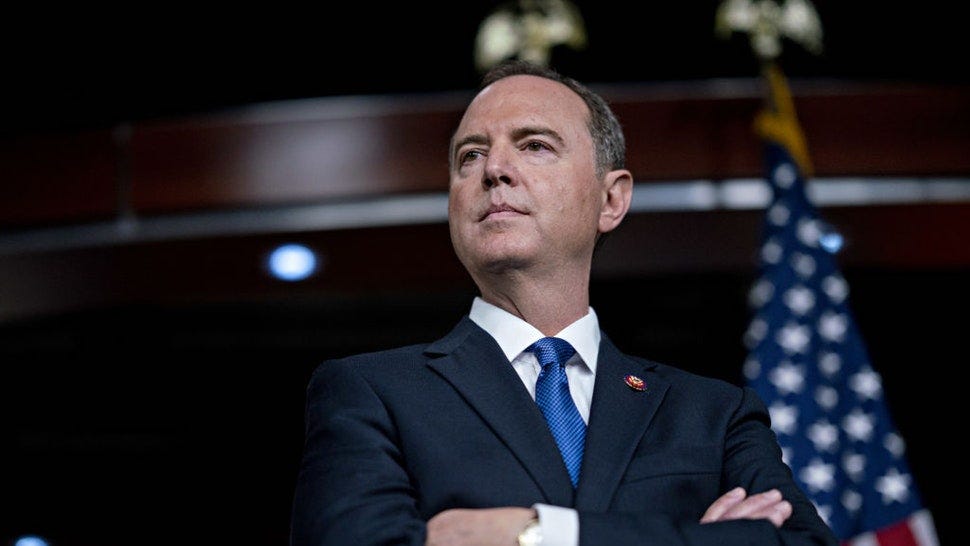


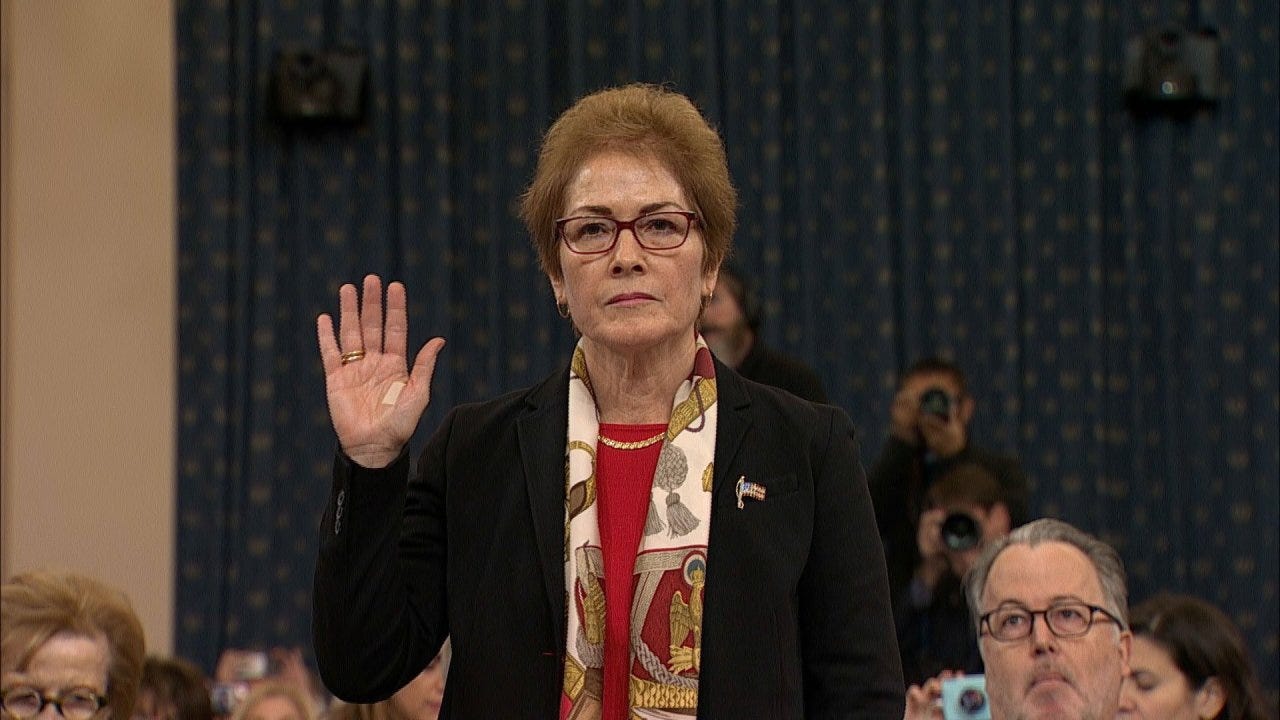
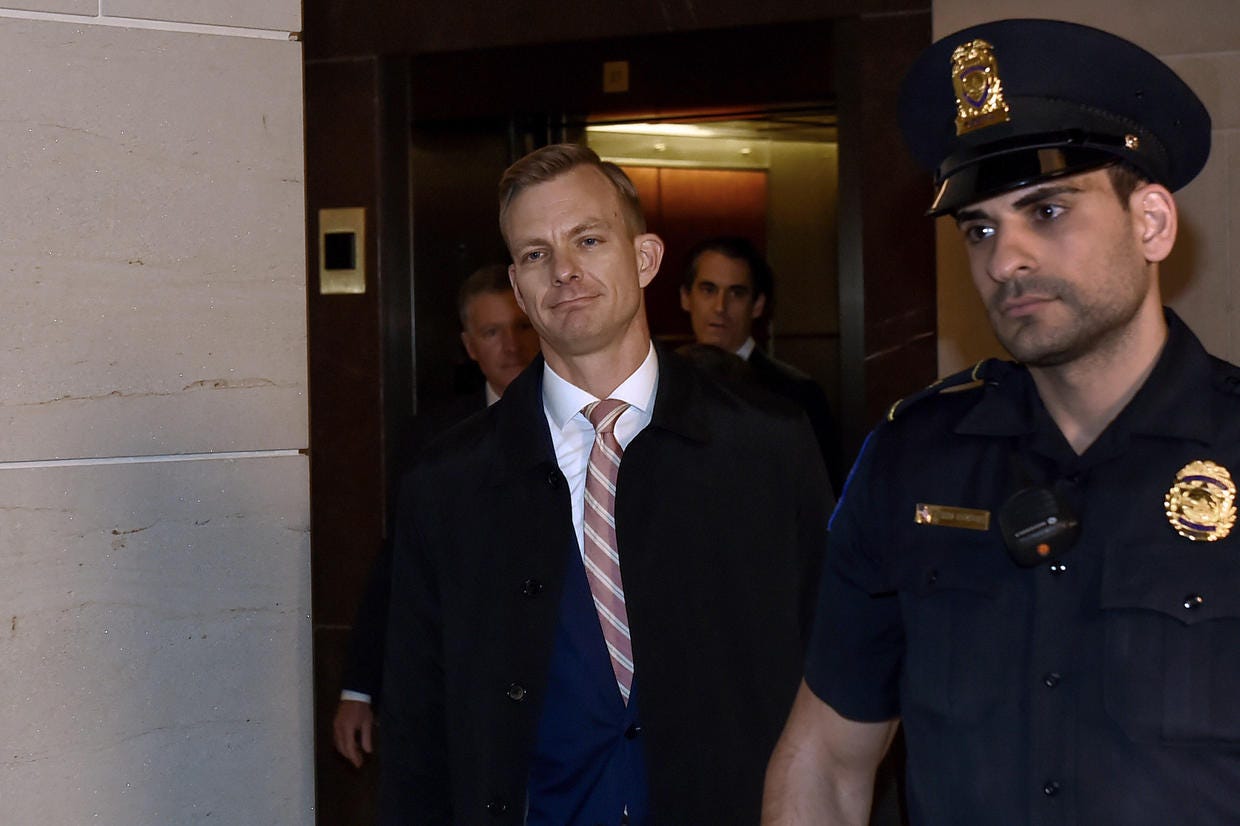
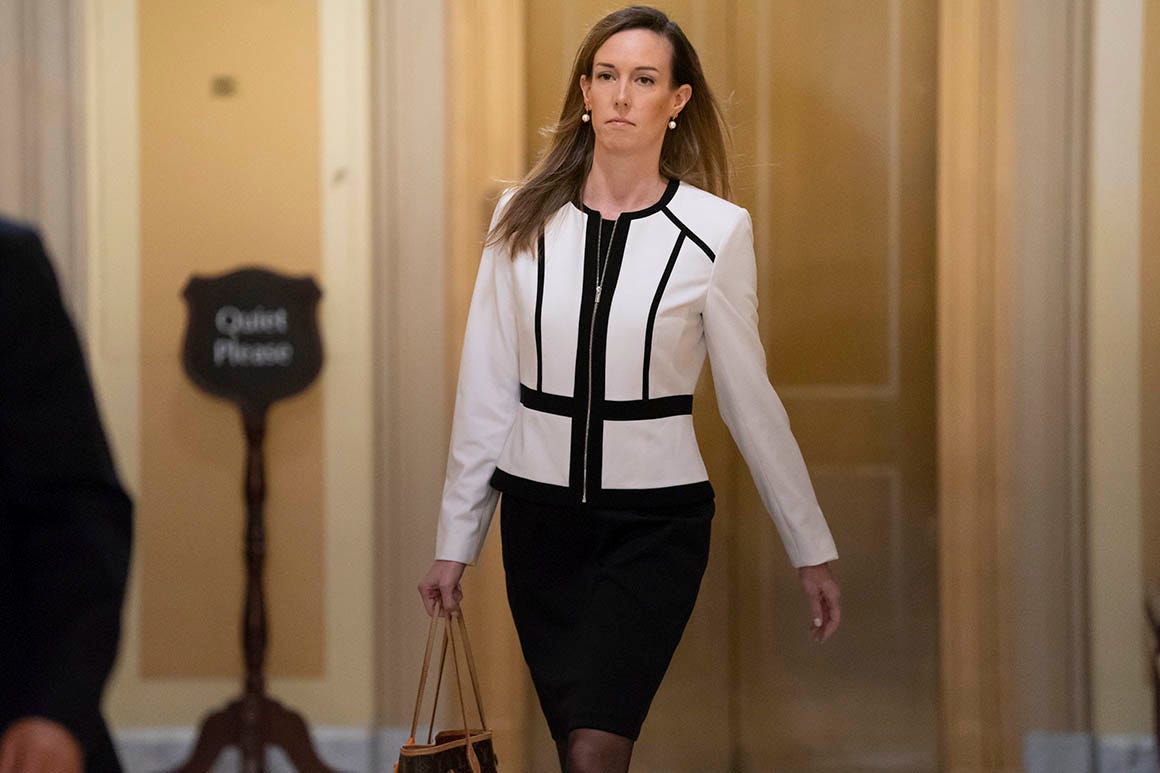
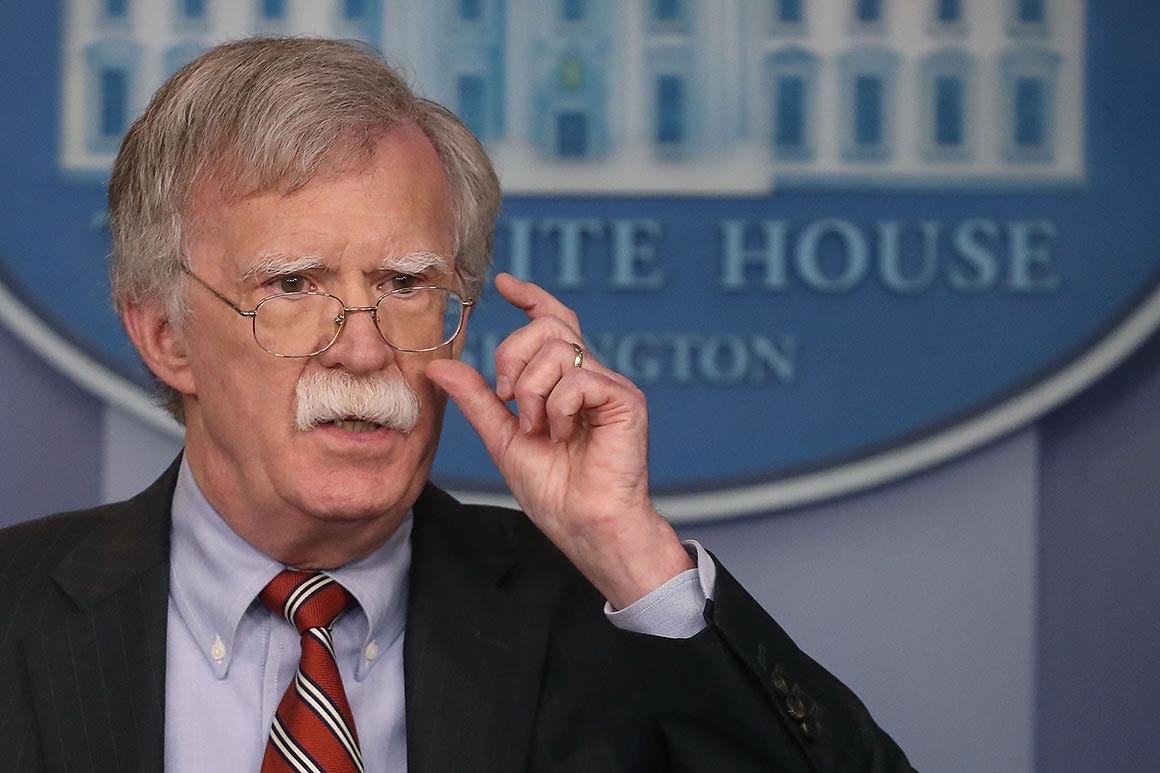
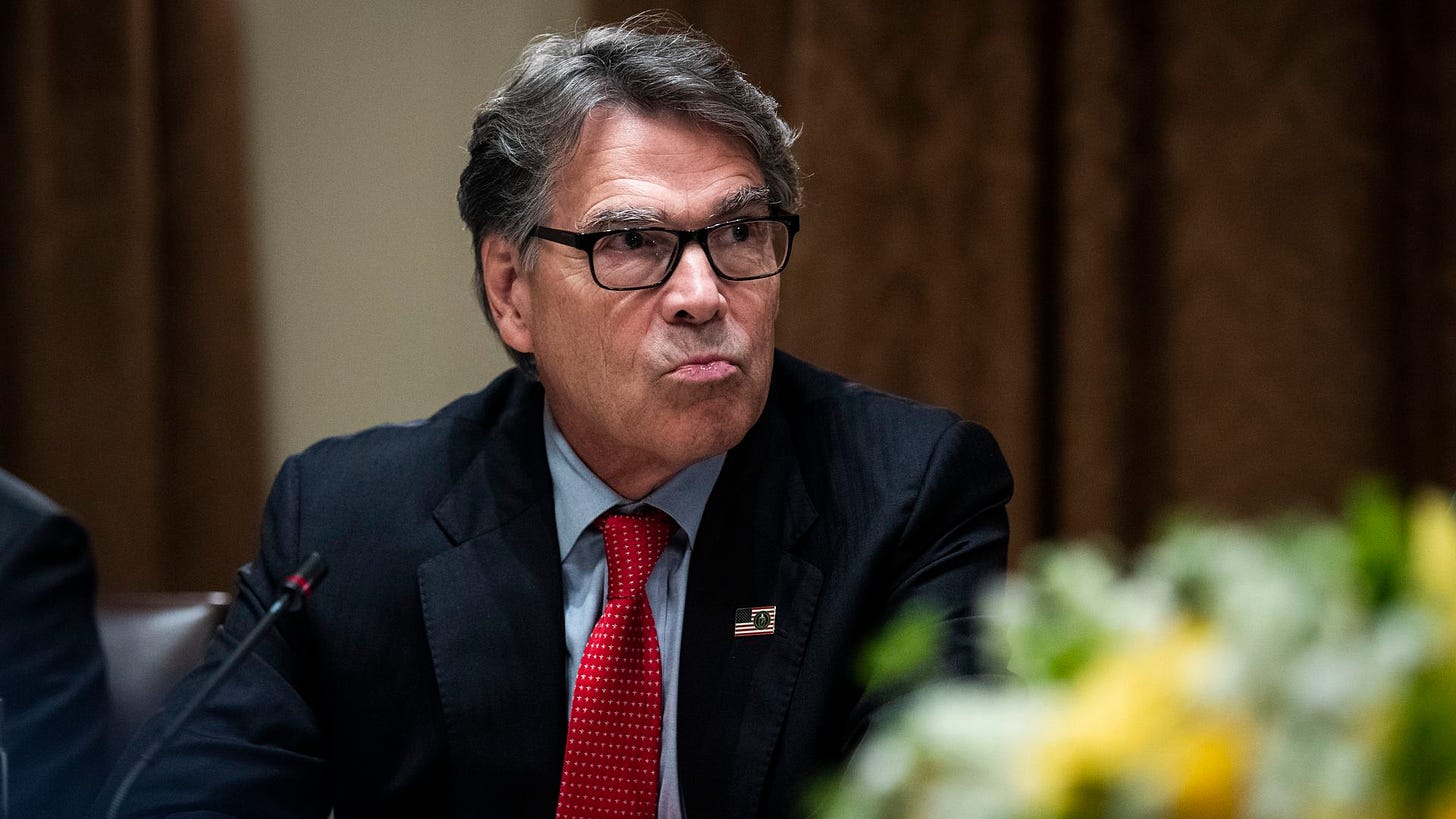
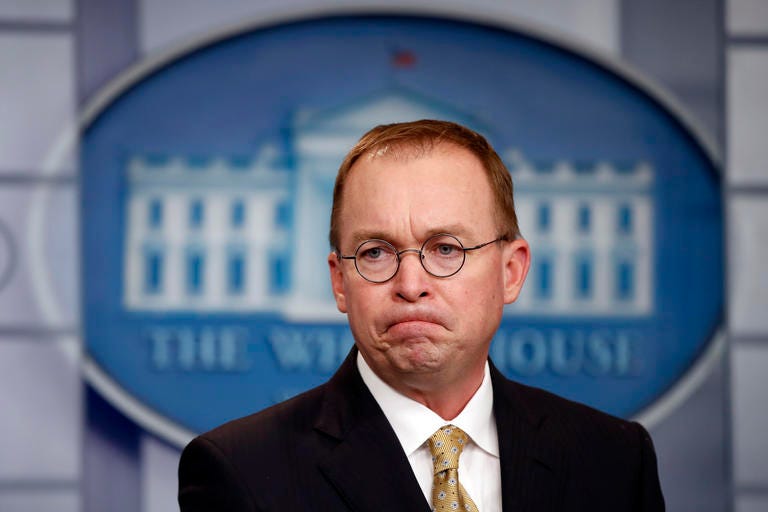
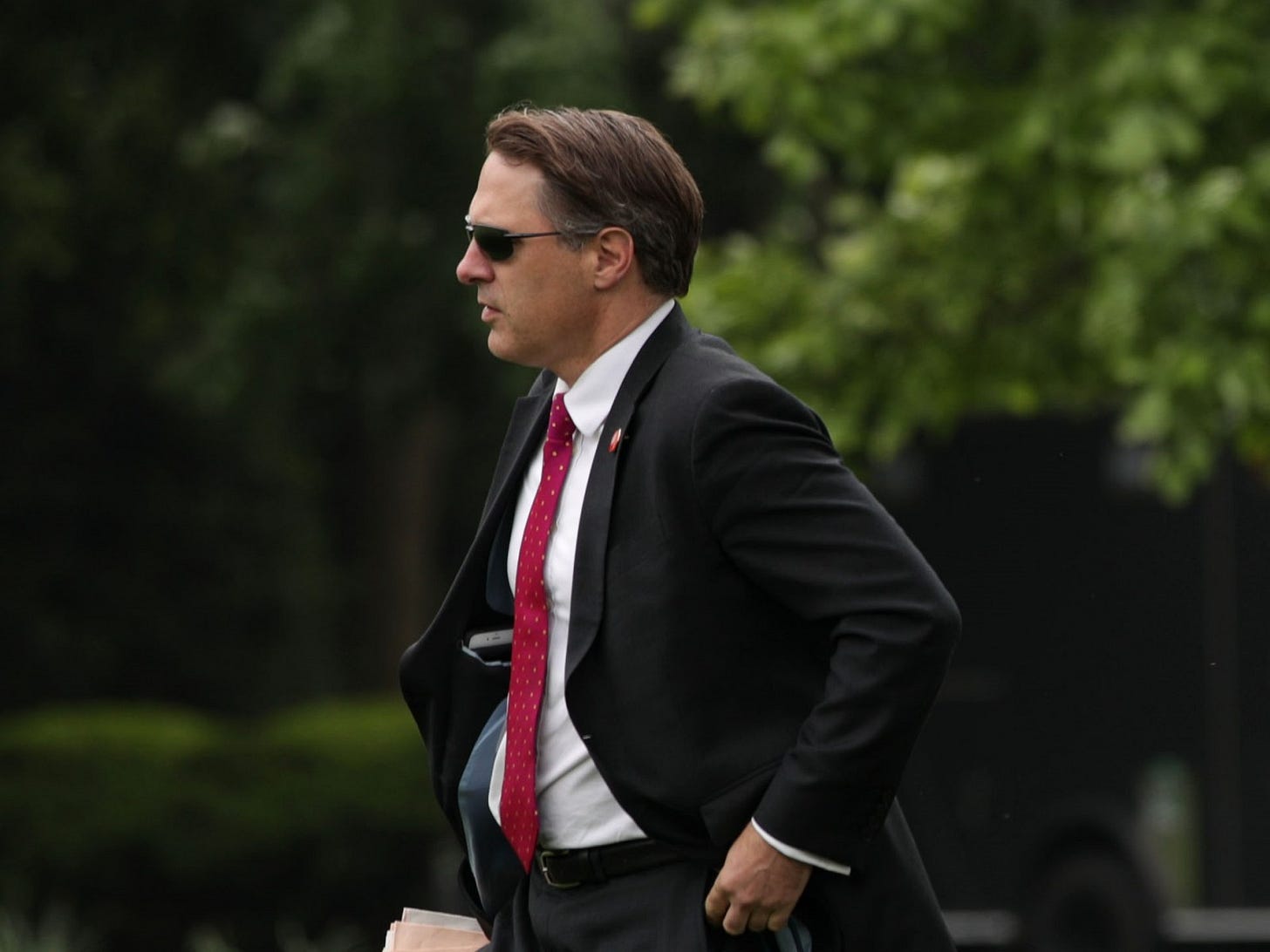
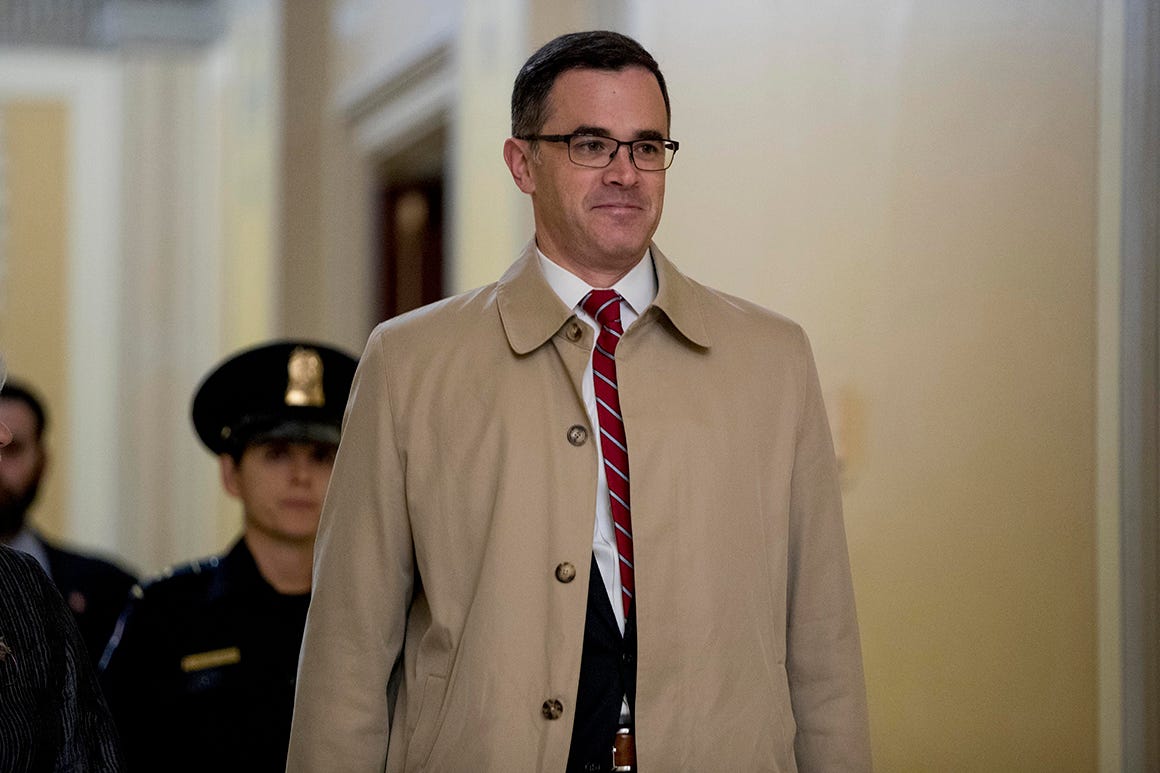
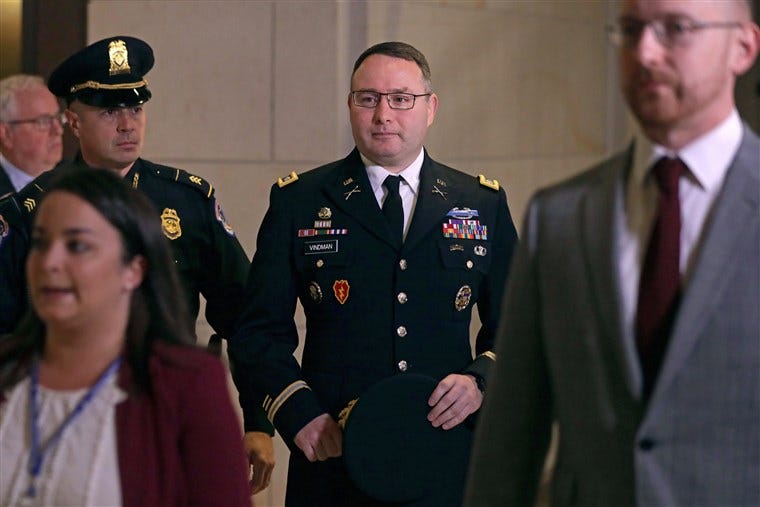
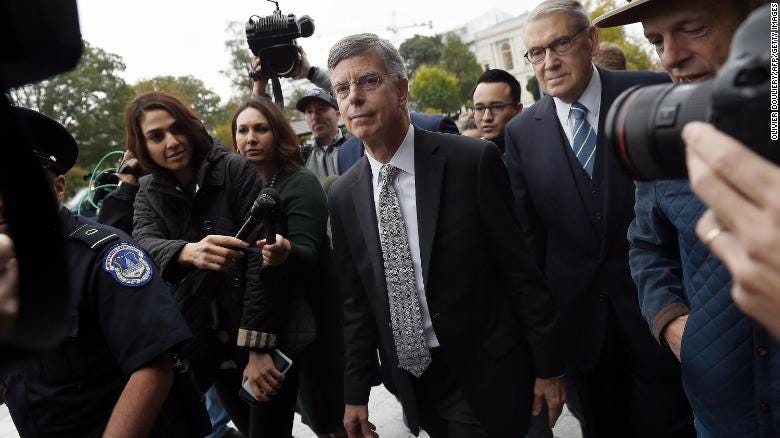
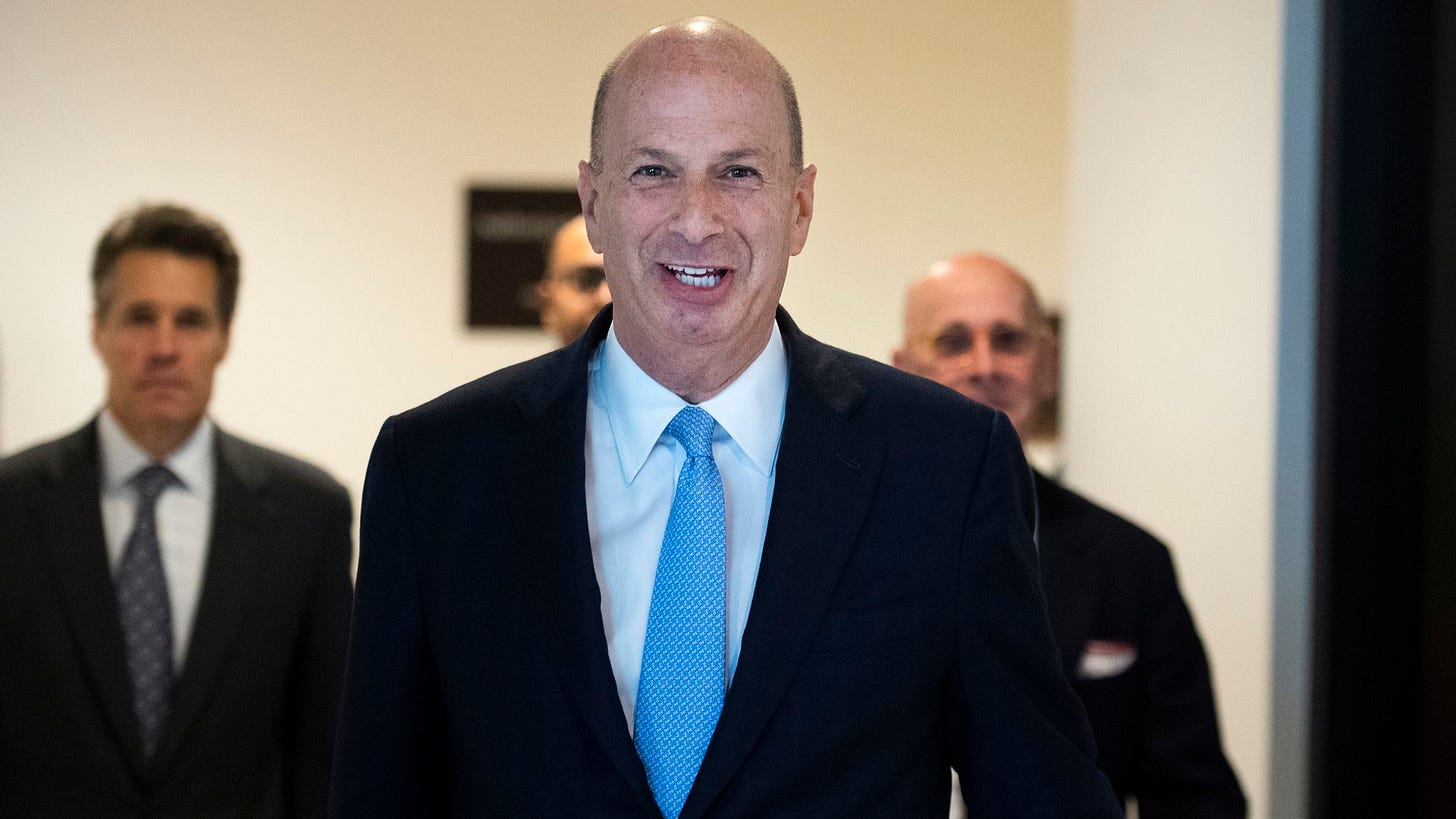
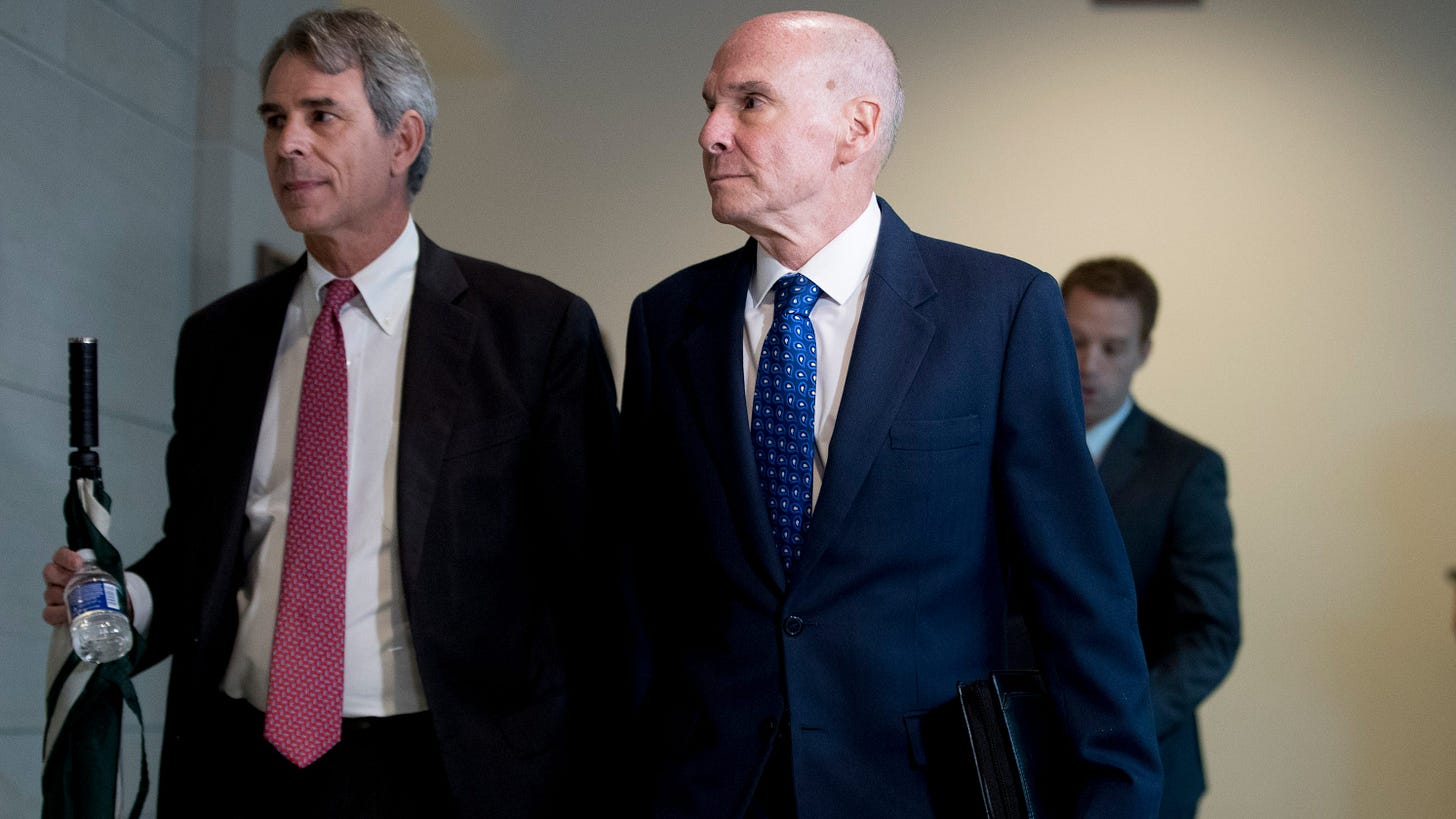
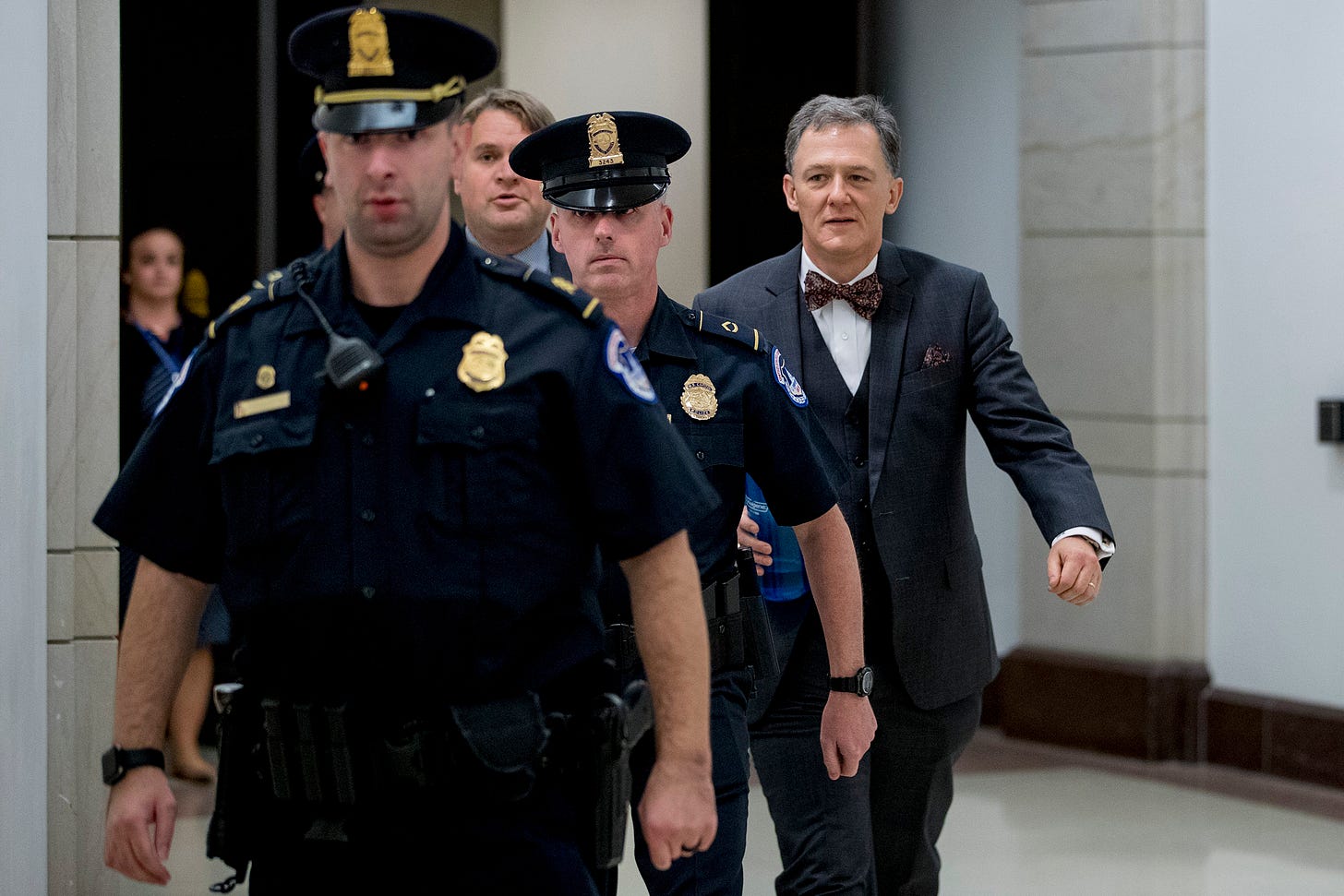
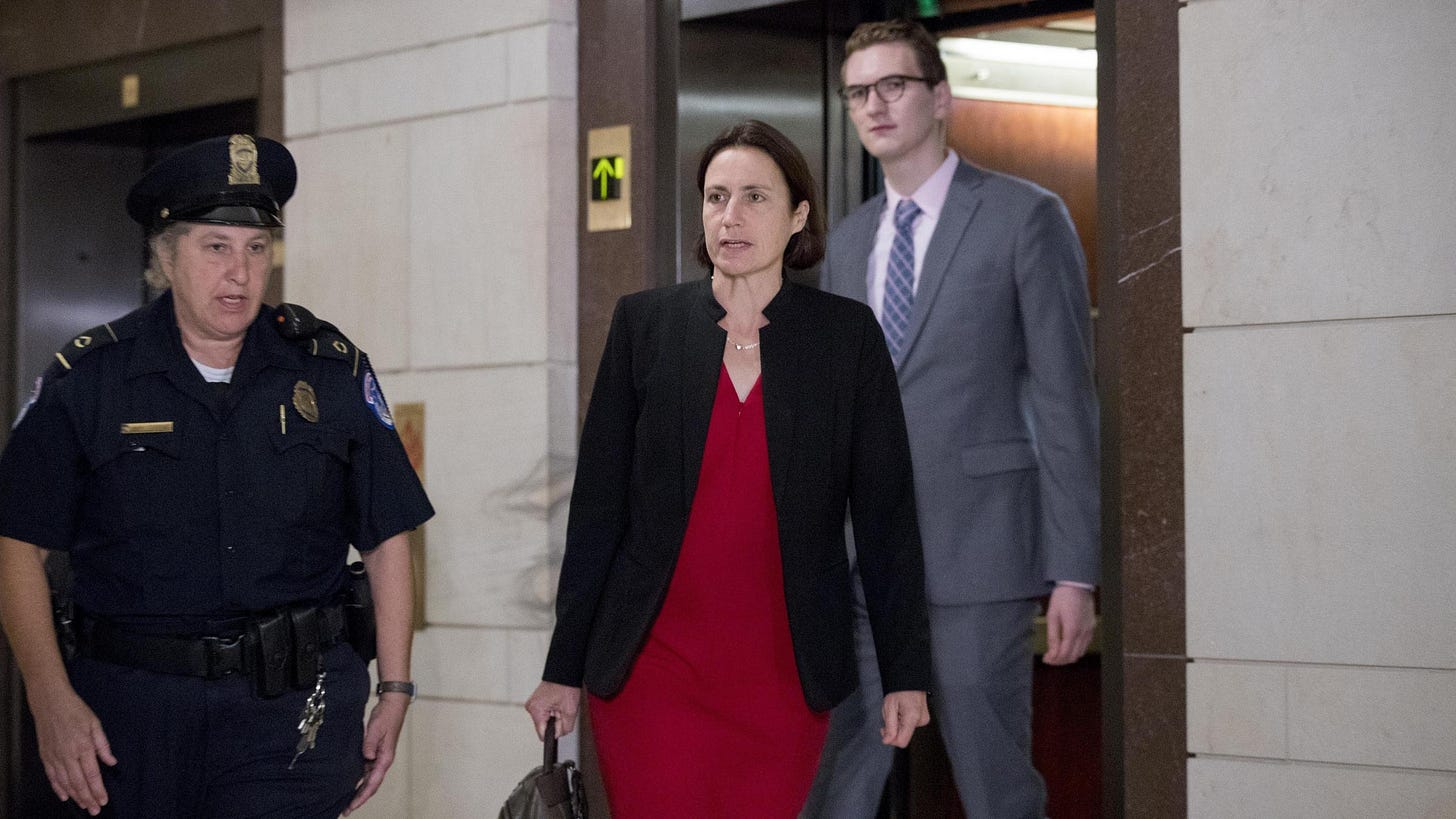
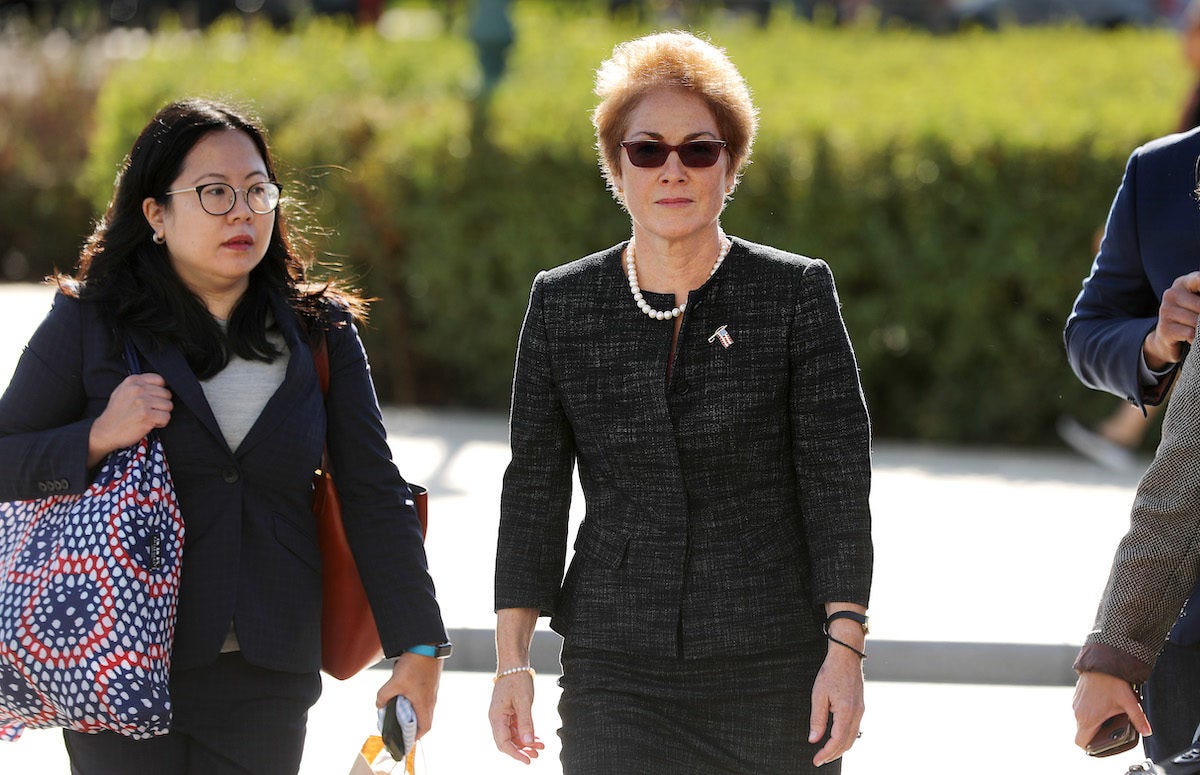
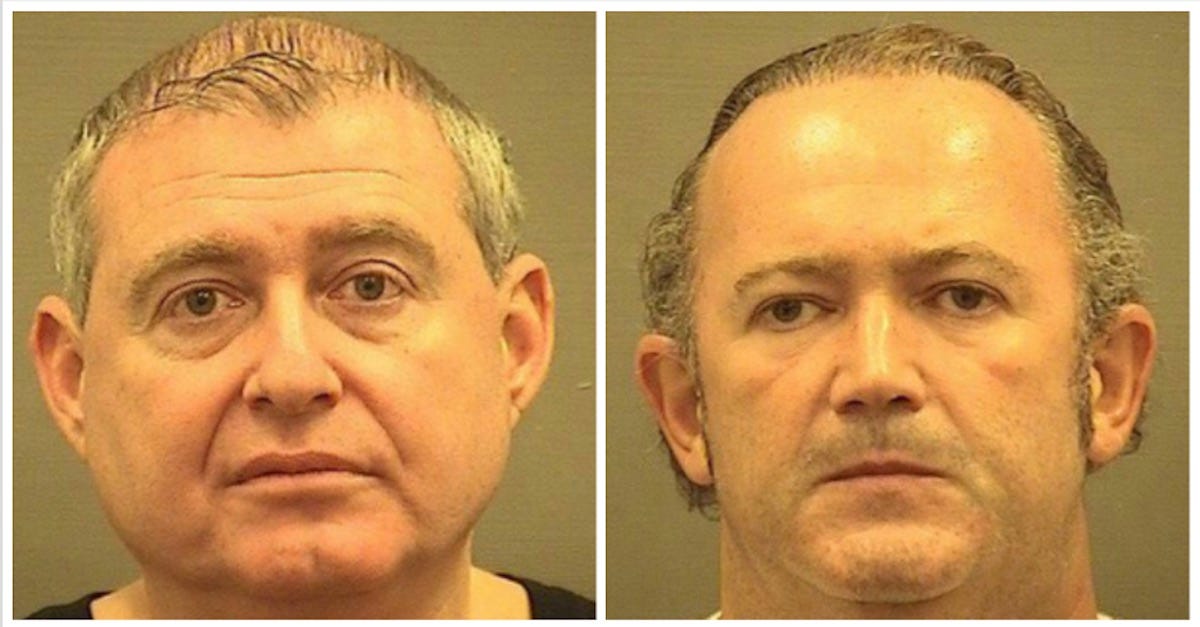
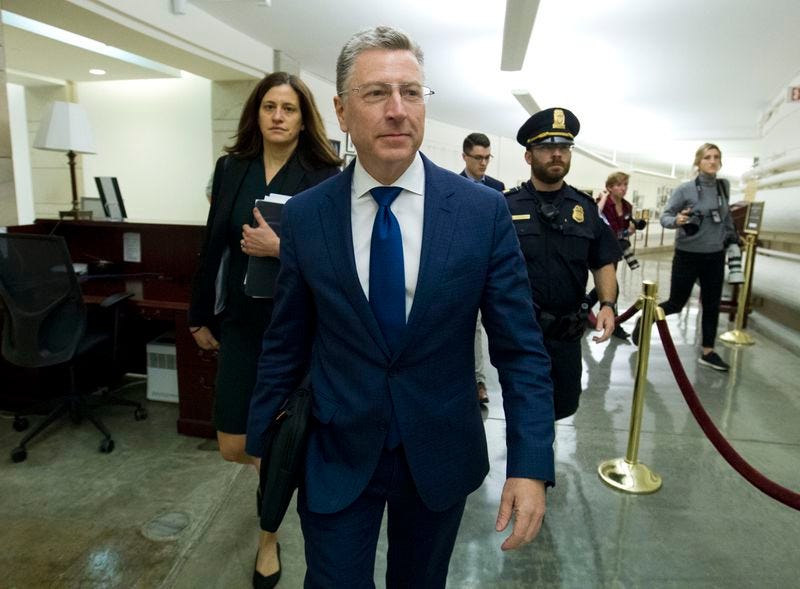

None of you knows this, but our girl Amee @girlsreallyrule has been really sick for 3 weeks. In spite of barely being able to get out of bed, she's been keeping us informed, and delivering her excellent content.
Show her love, read, retweet & subscribe to Shero!!!!
Thank you for these updates. Plenty of pizzazz in my opinion.